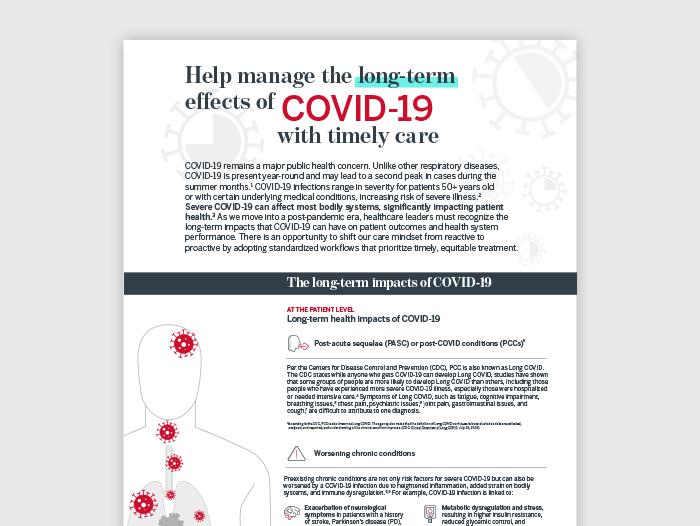Auto logout in seconds.
Continue LogoutThe percentage of physicians working in private practice has dropped significantly over the past 12 years, while the percentage of physicians employed in hospital-owned practices has increased, according to the American Medical Association's (AMA) biennial Physician Practice Benchmark Survey.
Report details
For the report, AMA surveyed 5,000 physicians who have completed residency, provide patient care for at least 20 hours per week, are not employed by the federal government, and practice in one of the 50 U.S. states or the District of Columbia.
Overall, AMA found that the percentage of surveyed physicians in private practice has dropped significantly in recent years, going from 60.1% in 2012 to 42.2% in 2024.
However, there were some specialties that were more likely to remain in private practice than others. For example, 70.4% of survey respondents working in ophthalmology worked in a private practice, as did 54% of those working in orthopedic surgery and 51.2% of those working in surgical subspecialties.
Of the other physicians surveyed, the majority were employed by hospitals. AMA found that the percentage of physicians working in hospital-owned practices increased from 23.4% in 2012 to 34.5% in 2024.
Similarly, the percentage of physicians working as a direct hospital employee or contractor increased from 5.6% in 2012 to 12.2% in 2024.
Advisory Board's Eliza Dailey noted that AMA's report largely confirms longstanding trends: private practice is declining, employment is rising, and groups are getting bigger.
Across all practices, "15.1% were purchased in the past five years (after 2019), 15.3% in the five years prior (2015-2019), and 41.6% before 2015," she said.
"While hospitals dominated early acquisitions, private equity has been much more active in recent years — accounting for 38.3% of purchases after 2019 compared to 10% for hospitals over the same time period," Dailey added. "This speaks to the rapid rise of corporate medical groups, which we've covered in depth at Advisory Board. And it isn't just private equity that organizations need to pay attention to."
RELATED resources
- Private equity investment in physician practices
- What you need to know about the 4 corporate medical group models
- 5 factors that will make or break a private equity-physician practice partnership
- How corporate medical group growth strategies are disrupting healthcare delivery
- 3 shifts impacting medical groups: 2024 update on the physician landscape
- 4 corporate medical group models
AMA also found that the percentage of physicians who described their employment status as "owners" dropped significantly, down from 53.2% in 2012 to 35.4% in 2024. Meanwhile, physicians who described their employment status as "employee" increased from 41.8% in 2012 to 57.5% in 2024.
According to the report, the top reasons physicians sold their private practices were to:
- Better negotiate higher payment rates with payers (70.8%)
- Improve access to costly resources (64.9%)
- Better manage payers' regulations and administrative requirements (63.6%)
- Ease participation in risk-based payment models (55.1%)
- Increase availability of additional services that patients need (48%)
- Better compete for employees in the labor market (48.9%)
"While seeing credentialing turnaround times equal to or exceed 60+ business days to process an application impacting revenue, Optum Advisory* provides access to industry-leading expertise, regulatory knowledge, and advanced technology platforms to reduce the time frame for primary source verification with a completed committee, to weeks," said Sue Sivertsen, director of advisory services at Optum Advisory. "Let us help you with your journey to plan the approach while identifying payer's requirements for enrollment and credentialing expediting network participation."
*Advisory Board is a subsidiary of Optum. All Advisory Board research, expert perspectives, and recommendations remain independent.
(Broderick, Modern Healthcare, 5/29; American Medical Association, Physician Practice Benchmark Survey, 5/29)
Don't miss out on the latest Advisory Board insights
Create your free account to access 1 resource, including the latest research and webinars.
Want access without creating an account?
You have 1 free members-only resource remaining this month.
1 free members-only resources remaining
1 free members-only resources remaining
You've reached your limit of free insights
Become a member to access all of Advisory Board's resources, events, and experts
Never miss out on the latest innovative health care content tailored to you.
Benefits include:
You've reached your limit of free insights
Become a member to access all of Advisory Board's resources, events, and experts
Never miss out on the latest innovative health care content tailored to you.
Benefits include:
This content is available through your Curated Research partnership with Advisory Board. Click on ‘view this resource’ to read the full piece
Email ask@advisory.com to learn more
Click on ‘Become a Member’ to learn about the benefits of a Full-Access partnership with Advisory Board
Never miss out on the latest innovative health care content tailored to you.
Benefits Include:
This is for members only. Learn more.
Click on ‘Become a Member’ to learn about the benefits of a Full-Access partnership with Advisory Board
Never miss out on the latest innovative health care content tailored to you.



